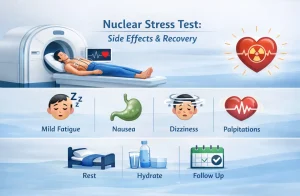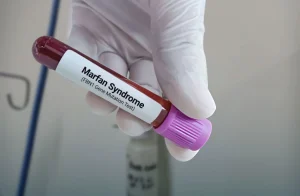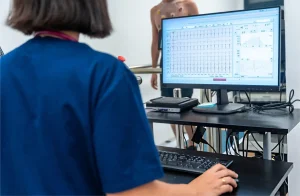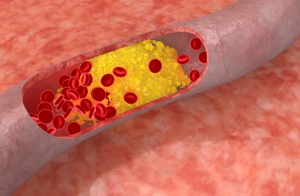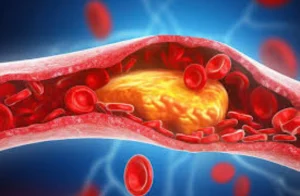Heart skipping a beat? Feeling those fluttery sensations in your chest, even though your doctor says your ECG and echo are normal? It’s frustrating, right? You’re not alone.
Millions of people experience heart palpitations, that sudden awareness of your heart pounding, racing, or skipping beats. It can feel like a tiny drum solo is happening inside your chest, and it’s definitely not the kind of rhythm you want. But here’s the kicker: sometimes, even when those standard heart tests come back clear, the palpitations persist. So, what gives?
Let’s uncover the reason behind this most asked question over the internet. We’ll explore the surprising reasons why palpitations can happen even with a “normal” heart, uncover potential triggers, and discuss how to find relief.
Why Do You Have Palpitations?
Your heart usually beats without you noticing it. But sometimes, it feels like it skips a beat, flutters, or races. That’s called a palpitation. It can be a little scary, but it’s usually not a big deal.
So why does it happen? Here are a few reasons:
Your heart has an electrical system that keeps it beating regularly. Sometimes, there can be little glitches in this system, like a short circuit. This can cause your heart to skip a beat or race for a bit.
When you’re stressed or excited, your body releases chemicals that make your heart beat faster. This can cause palpitations. Even everyday worries can sometimes make your heart race.
Things like caffeine, alcohol, and not getting enough sleep can mess with your heart’s rhythm. It’s like giving your heart too much sugar – it gets a little hyper.
Sometimes, palpitations can be a sign of another health issue, like a problem with your thyroid or not having enough iron in your blood.
Why do I Have Heart Palpitations With Normal ECG?
It’s a bit of a head-scratcher, isn’t it? Here’s the thing An ECG is a snapshot of your heart’s electrical activity at a specific moment. While it’s excellent at detecting structural abnormalities and consistent rhythm disturbances, it might miss sporadic or infrequent palpitations. If your heart flutters only briefly or intermittently, the ECG might not capture it during the short recording period.
Some heart rhythm irregularities, like premature atrial contractions (PACs) or premature ventricular contractions (PVCs), can cause noticeable palpitations but might not be frequent or severe enough to be caught on a standard ECG. These “silent arrhythmias” can be more elusive and may require additional testing, like a Holter monitor, to be identified.
Prevent heart problems before they start – Schedule a preventive checkup
Contact UsPalpitations Caused By Stress and Anxiety
Stress, anxiety, and even strong emotions can trigger palpitations. Your nervous system plays a powerful role in regulating your heart rate, and heightened states of arousal can lead to a racing heart or skipped beats. While these palpitations can feel intense, they’re often harmless and unlikely to show any abnormalities on an ECG.
Daily lifestyle factors
Your daily habits can significantly impact your heart’s rhythm. Caffeine, nicotine, alcohol, dehydration, and lack of sleep can all contribute to palpitations. Even certain medications or supplements can have side effects that affect your heart rate. An ECG won’t reveal these lifestyle factors, but they can play a major role in triggering those fluttery feelings.
Underlying Medical Conditions:
Sometimes, palpitations can be a symptom of an underlying health condition, such as an overactive thyroid, anemia, or electrolyte imbalance. While an ECG might not directly identify these issues, they can indirectly affect your heart’s rhythm and trigger palpitations.
What to Do if ECG/Echo are Normal But You Still Have Palpitations?
It’s reassuring to have normal ECG and echo results, but the persistence of palpitations can still leave you feeling unsettled. So, what’s the next step? Here’s what you can do:
1. Keep a Palpitation Diary:
- Start tracking your palpitations in a diary or app. Note when they occur, how long they last, and any associated symptoms or triggers (stress, exercise, caffeine, etc.).
- This information can be invaluable for your doctor in identifying patterns and potential causes.
2. Review Your Lifestyle:
- Take a close look at your daily habits. Are you consuming excessive caffeine or alcohol? Are you getting enough sleep? Are you managing stress effectively?
- Consider making adjustments, such as reducing caffeine intake, improving sleep hygiene, and incorporating stress-reduction techniques like meditation or yoga.
Prevent heart problems before they start – Schedule a preventive checkup
Contact Us3. Discuss Further Testing with Your Doctor:
- If palpitations persist despite lifestyle changes, talk to your doctor about additional tests:
- Holter monitor: Records your heart’s activity for 24-48 hours, providing a more comprehensive view than a standard ECG.
- Event recorder: Worn for a longer period, this device allows you to record your heart rhythm when you experience palpitations.
4. Explore Stress Management and Relaxation Techniques:
- Chronic stress and anxiety can significantly contribute to palpitations.
- Practice relaxation techniques like deep breathing, meditation, mindfulness, or yoga to reduce stress levels and manage anxiety.
- Consider seeking professional help from a therapist or counselor if you’re struggling with anxiety or stress management.
5. Consider Medication or Supplements:
- In some cases, your doctor may prescribe medication to control heart rhythm or manage anxiety if it’s a major trigger for your palpitations.
- Certain supplements like magnesium or omega-3 fatty acids might also help, but consult with your doctor before starting any new supplements.
6. Don’t Ignore Your Symptoms:
- If your palpitations worsen, become more frequent, or are accompanied by other symptoms like chest pain, dizziness, or fainting, seek immediate medical attention.
Final Words
While a normal ECG and echo are reassuring, the presence of heart palpitations warrants further investigation and management. Remember, you’re not alone in this journey. By staying proactive, making informed lifestyle choices, and working closely with your healthcare provider, you can effectively manage your palpitations and reclaim control over your heart health.
If you’re struggling with persistent heart palpitations or any other cardiovascular concerns, consider reaching out to Atlantic Cardiovascular. Their team of experienced cardiologists is dedicated to providing comprehensive care and helping patients understand and manage their heart health. Don’t hesitate to seek their expertise for personalized guidance and treatment options.



